With the high costs of accommodation in many places, more people are considering hostels as part of their travel plans. Are hostels an affordable alternative? Are they safe? Do older travellers stand out? What do you need to pack? Is there accepted ‘hostel etiquette’ when staying in dorms? in this hostel guide and packing tips for travellers of all ages, these questions and more hopefully will be answered.
When travelling solo, as an older traveller, my first choice is to stay in a women’s dorm in a hostel. In this post I’ll outline my reasons and what I’ve learned as a result.
Table of Contents
- People are sceptical about hostels
- The international hostel market is changing
- Are you too old to stay in hostels?
- Reasons people stay in hostels
- 1. Hostels are affordable
- 2. Hostels are safe
- 3. Most hostels take cleanliness seriously
- 4. Hostels support a slower pace of travel
- 5. Location, location, location
- 6. Some hostels are very well designed
- 7. Many hostels organize activities
- 8. Hostels offer discounted tours and tickets
- 9. Hostels offer affordable food and drinks
- 10. Hostels are eco-friendly by nature
- 11. Hostels offer an opportunity to support the local economy
- 12. Hostels are a source of advice and short-term travelling companions
- 13. Most hostels are very quiet
- 14. Solitude or company. The choice is yours.
- Hostel guide and packing tips
- Tips on choosing a hostel
- Packing list essentials for staying in hostels
- 1. Lock
- 2. Shower shoes
- 3. Toiletry bag with a hook
- 4. Travel towel
- 5. Travel clothesline
- 6. Vapour rub
- 7. Dry sack
- 8. Earplugs
- 9. Headphones
- 10. Sleep mask
- 11. Sleep sack
- 12. Charging cords of different lengths
- 13. Booklight
- 14. Flashlight
- 15. Membership card and booking confirmation email
- 16. Tolerance and tempered expectations
- Conclusion
People are sceptical about hostels
Inserting a single ‘s’ into the word ‘hotel’ diminishes the status of hostels in the eyes of many travellers. Concerns range from questionable cleanliness to rowdy residents to safety and security of possessions. However, these are the same issues encountered in hotels.
Hostels have changed. One change is that ‘youth’ has largely been dropped from the ‘youth hostels’ of yesteryear. It’s a positive change and more in keeping with the changing demographic of travellers who, for a variety of reasons, choose to stay in hostels. And it’s not just the label that’s changed.
What is a hostel?
A hostel is a community-based form of accommodation. It typically offers travellers a shared room of bunk beds or a private room with access to communal facilities.
Communal facilities include gender-specific or mixed-gender bathrooms, a well-equipped self-catering kitchen, lounge or reading area, cinema, TV room, bar, dining area, self-serve laundry, and a computer station with a printer.
Some hostels have private rooms only. Some only have dormitories. The vast majority have the choice of private rooms or dormitory accommodation. Dorms are categorized by gender and bed count. Mixed-gender dorms tend to be slightly cheaper than gender-specific dorms. The higher the bed count, the cheaper the cost (usually). A smaller four- or six-person dorm may have an ensuite bathroom.
Some have pod accommodation, much like pods in a pod hotel or capsule hotel. At the Met A Space Pod in Singapore and the Pod Inn in Launceston, Tasmania, I had my pod but shared bathroom facilities.
 Pod Inn, Launceston, Tasmania
Pod Inn, Launceston, Tasmania
The international hostel market is changing
The basic no-frills hostels built for backpackers are a remnant of the past. Amenity-rich, designer hostels are on the increase to appeal to those who are travelling longer, such as retirees, digital nomads, and workers with benefits that include decent leave packages and deferred salary plans.
One study found 72 percent of hostel guests travel alone. Most are budget conscious yet expect experience-driven services and opportunities to meet people across generations and cultures.
A growing trend is recent years is the emergence of women-only hostels offering top-notch security with amenities and services appreciated by solo women travellers.
The growing hostel market hasn’t gone unnoticed by the hotel industry. Major hotel chains such as Marriott and Hilton are following smaller operators in the micro-hotel space with smaller rooms. In 2022 in Gdańsk, Poland, I stayed at the Hostel Szafarnia in the Marina Club Hotel. The hostel occupied several floors that had been recently converted to hostel accommodation.
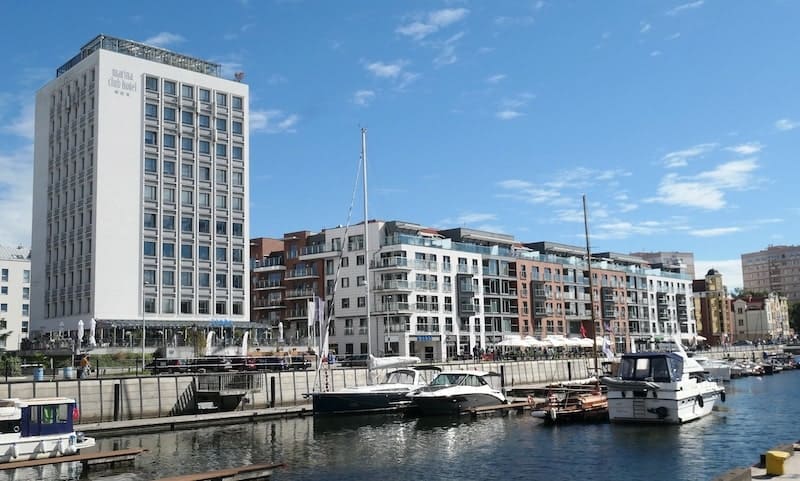 Hostel Szafarnia, Marina Club Hotel, Gdańsk, Poland
Hostel Szafarnia, Marina Club Hotel, Gdańsk, Poland
Are you too old to stay in hostels?
This question is often explored in Facebook travel groups. An inevitable conclusion is that it’s not a question of age but what one needs and desires when choosing accommodation. It also relates to the size of a travel budget and the spending priorities of individual travellers. It’s about whether or not, and in what ways, staying in hostels enriches a travel experience.
Light sleepers, people who value their privacy and dislike sharing bathroom facilities, typically give hostels a miss. Those who enjoy interacting with other travellers and finding companionship and short-term-travel mates are drawn to hostels.
According to one traveller in the Facebook group, Solo in Style: Over 50 Travelling Solo & Loving It!
“…staying in hostels can be a wonderful levelling and freeing experience in which it feels like nobody thinks about the age of others. Another upside is younger folks always seem to think I’m younger than I am. It’s like they can’t fathom anyone being 59. Bonus. Ego boost.”
My own ‘being older has its benefits’ story was on my departure from the Equity Point Hostel in Marrakech. I had decided to catch the 3:00 am bus to Tangier and take a ‘petit taxi’ from Jamaâ El Fna Square. As I was leaving the hostel after 1:00 am, one of the four guys hovering around the door said it wasn’t safe for someone OLD like me to venture out in the souk at that hour. After trying unsuccessfully to call a petit taxi to come closer to the hostel in the Medina, the security guy was pressed into service as my chauffeur. He borrowed a second helmet from someone at the end of the alley, and I was safely delivered to the bus station.
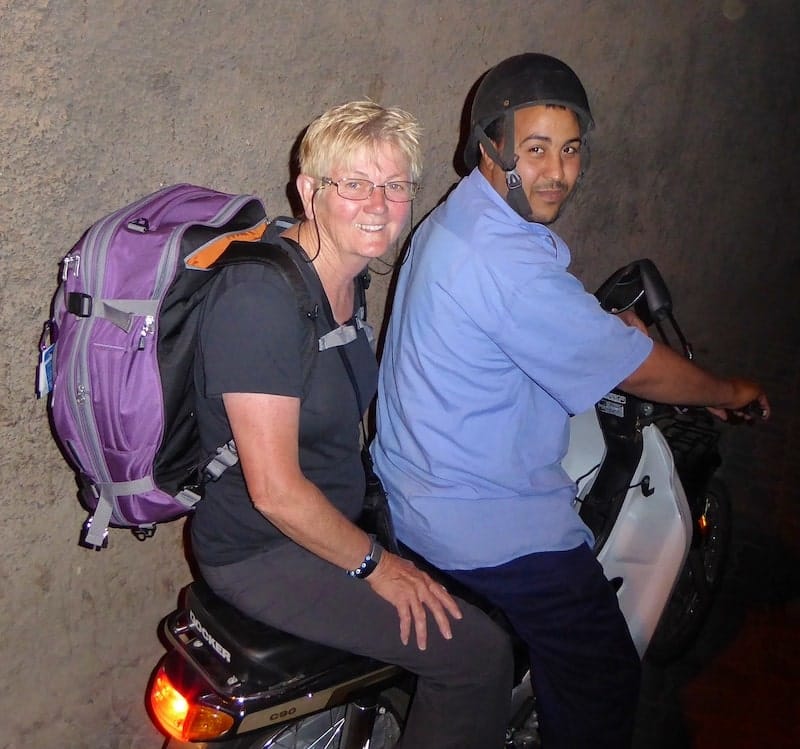 Equity Point Hostel, Marrakech
Equity Point Hostel, Marrakech
Reasons people stay in hostels
1. Hostels are affordable
“Can anyone recommend a nice hotel in London under $500 a night that’s centrally located and safe? I studied there 15 years ago, but these prices are now through the roof!”
Questions such as this in social media travel groups offer clues on what some people expect to pay for accommodation.
Kamelia Britton, the voice behind The Hackerette, lives by the mantra, “Save where you can so you can splurge where it counts.” It’s a concept many people embrace and one that extends to accommodation.
I love hostels for the thin slice of my travel budget allocated to overnight stays. I can bed down in a hostel for a fraction of the price of staying in a hotel. Doing so translates into more trips, enjoying a slower pace of travel involving an extended stay at a destination and the ability to spend money on other things. We all have different spending priorities but I’d rather devote a larger portion of my travel budget to interesting tours, exploring the local food scene, and participating in unique experiences.
Would I enjoy the luxury and privacy of a hotel room? Absolutely, but at ten times the price of a bed in a women’s dorm in a hostel, it’s an option I rarely crave. Besides, there are many other reasons I stay in hostels.
2. Hostels are safe
I’ve felt safer in hostels than in hotels. Anyone can walk into a hotel, but a card key is usually needed to enter a hostel, especially at night. Access to particular floors, passageways, and sections is also limited to the location of a guest’s sleeping accommodation. I’ve stayed in hostels with 24-hour CCTV surveillance or security personnel patrolling the premises at night.
In a hotel, I might be alone with another person in an elevator and concerned about revealing my floor. Or wondering if a person is following me to my room. What if someone has a key to my room (it’s happened) or tries to break in during the night? What if I slip in the shower and can’t call for help?
These aren’t concerns I have in a hostel. There are always people around. If I fall and injure myself, there will be someone to come to my aid.
3. Most hostels take cleanliness seriously
I’ve stayed in hostels where common areas are cleaned several times daily. Sleeping areas are typically cleaned once a day. Kitchens are usually set up with equipment and supplies to make it easier for individual guests to clean up after themselves.
 HI NYC Hostel
HI NYC Hostel
The odd hostel has guests make their beds on arrival. I’m not opposed to the practice as it instils confidence that the fitted sheet, pillowcase, and comforter cover have been laundered after the last guest. I’ve stayed in many hotels where I’ve questioned the cleanliness of bedding.
4. Hostels support a slower pace of travel
On average, I can stay in a hostel for four or five nights for the same price as one night in a hotel. It means staying in a destination longer and surrendering to a broader experience. I can more easily justify inserting rest periods and rest days and creating more time for reflection and journaling. It means supporting local eateries and stores, hiring local guides, walking, biking, using public transportation, and meandering away from the tourist trail.
There’s less of a rush to check off places on a bucket list before moving on to the next destination. Hostels promote a slower and more considered approach to seeing and experiencing the world.
5. Location, location, location
Hostels breathe life into older buildings — former offices, hotels, monasteries, or jails. Historic buildings can be preserved and repurposed into living spaces for budget travellers. They’re often centrally located, within easy reach of public transit and bike rental stations or walking distance of a city core (if not in the heart of it).
- In Alice Springs, I stayed in what was once a historic outdoor movie theatre in the centre of town.
- In Queenscliff, Australia, the Cobb & Co Lodge is in the historic Cobb & Co stables and stagecoach station built in 1862.
- In Marrakech, Equity Point Hostel is in a 300-year-old riad in the heart of the Medina.
- HI NYC on the Upper West Side is in the former ‘Association Residence for the Relief of Respectable Aged Indigent Females,’ used between 1883 and 1974.
- The Oki Doki Hostel in Warsaw is one of the few buildings in the Old Town to have survived the Nazi occupation.
- YHA Sydney Harbour is built above the archeological remnants of Australia’s colonial past in the historic Rocks precinct.
 Photo credit: YHA Sydney Harbour
Photo credit: YHA Sydney Harbour
Former convents and monasteries are another source of basic, affordable, and safe accommodation. Many offer meals, and some support worthy projects. Check out Good Night and God Bless, Monastery Stays, and Monasteries.
6. Some hostels are very well designed
It’s a pleasure to stay in a hostel designed by people who are in touch with the needs of budget travellers.
Today’s traveller needs to connect with free Wi-Fi throughout the property. It’s a rare hostel that can only guarantee a signal in common areas.
Each bunk has its own safe at the Hostelling International Hostel in Toronto.
At the Space Inn in Taipei, each guest has a full-sized locker with a handy shelf and a large compartment to accommodate a bag of at least 60 litres. Each bunk has full privacy curtains, a reading light, and a bedside shelf with charging ports.
In Australia, the Brisbane City YHA Hostel offered a five-star view from the roof deck and pool for the $27 cost of an overnight stay.
At Equity Point in Marrakech, the pool offered a welcome treat after a busy day of sightseeing.
 Equity Point, Marrakech
Equity Point, Marrakech
7. Many hostels organize activities
There are book exchanges, bicycles, free walking tours, photography tours, movies, game nights, barbecue evenings, and pub crawls. Location-specific activities include salsa dancing and mojito making; a reasonably priced cooking class results in a delicious communal dinner. The free walking tour in San Francisco introduced me to the city within hours of my arrival.
 HI San Francisco Downtown Hostel
HI San Francisco Downtown Hostel
8. Hostels offer discounted tours and tickets
Hostels attract budget travellers who appreciate affordability. The HI San Francisco Downtown Hostel offered a sizeable discount on a daily bike rental for the memorable experience of biking the Golden Gate Bridge.
The Brisbane City YHA Hostel offered a discounted train ticket from Roma Street to the airport.
9. Hostels offer affordable food and drinks
Hostels with on-site bars sell drinks at decent prices in an atmosphere that encourages mingling. Affordability is key; otherwise, folks would go elsewhere. If breakfast isn’t included, many hostels offer a substantial breakfast for a nominal fee. At Hostel Archi Rossi in Florence, the abundant breakfast buffet included in the cost of accommodation kept me satisfied until the evening meal.
Take Palmers Lodge in London, a costly city to visit. In September 2022, a happy hour brew was priced at GBP 3 and a continental breakfast buffet with ham, cheese, croissants, toast, muffins, cereals, fruit, and unlimited coffee cost 6.50.
10. Hostels are eco-friendly by nature
Hostels encourage eco-mindedness by helping travellers reduce their footprint by sharing sleeping spaces and common rooms, walking more, or sharing rides with others.
Every 10-kilogram towel wash consumes at least 50 litres of water and 1.2 kilowatt-hours of electricity. Travellers who bring their towels (or rent them) create less pressure on the environment by reusing towels and lowering water, energy, and detergent consumption.
A hostel dorm for six or eight travellers is roughly the same size as an average hotel room with similar heating or air-conditioning costs.
 HI NYC Hostel
HI NYC Hostel
Many hostels have incorporated eco-friendly practices. In its century-old building in downtown Toronto, The Planet Traveler prides itself on being ‘the greenest hostel in North America.’
11. Hostels offer an opportunity to support the local economy
I’m yet to discover a multinational corporation in the hostel space. The likes of Marriott and Hyatt make their money elsewhere. My favourite hostels are under the umbrella of the 62 not-for-profit hostelling associations that have joined Hostelling International, a federation of over 3,000 worldwide hostels.
Also, it’s safe to assume that staff are recruited from the local community who may be joined by a few travellers who exchange labour for free accommodation.
12. Hostels are a source of advice and short-term travelling companions
Hostels are more than just a place to sleep. They’re communities of like-minded individuals of all ages crossing geographical and socio-economic boundaries.
Hostel staff and guests are more than willing to share information on what to do, where to eat, and how to get around. Dormitories and common rooms are fertile terrain for gathering rich and wide-ranging intel on all things travel. It’s also an opportunity to learn about other countries and cultures.
They’re a source of short-term travelling companions to hang out with, share the cost of transportation, travel together to the next destination, or become lifelong friends.
- On the free walking tour offered by the HI San Francisco Downtown Hostel, I chatted with Paula, a translator from Buenos Aires. This led to several days of exploring the city together.
- At Me Mates Villa in Phnom Penh, I shared the cost of a tuk-tuk to the genocidal museum and killing fields with Kari from Norway, Cyril from France, and Carolina from Colombia.
- In Marrakech, I teamed up with a costume designer from Berlin to explore Le Jardin Majorelle and share a meal in Jamaâ El Fna Square.
- In Toronto, a British traveller in my dorm was unfamiliar with hockey and baseball. We visited the Hockey Hall of Fame together and enjoyed a Blue Jays baseball game. Meanwhile, I learned about the challenges facing young people interested in a working holiday in Canada.
- In Florence, I joined Isabel, an artist from Portugal, on one of her excursions to capture the beauty of Florence on canvas.
- In Lisbon, I struck up a friendship with Vanessa from Britain. We’ve since met up in Spain and the UK for subsequent adventures.
- In San Francisco, Cassandra from Los Angeles sought work and accommodation. At the end of each day, I looked forward to hearing reports of her efforts to make a living and find affordable housing in a very expensive city.
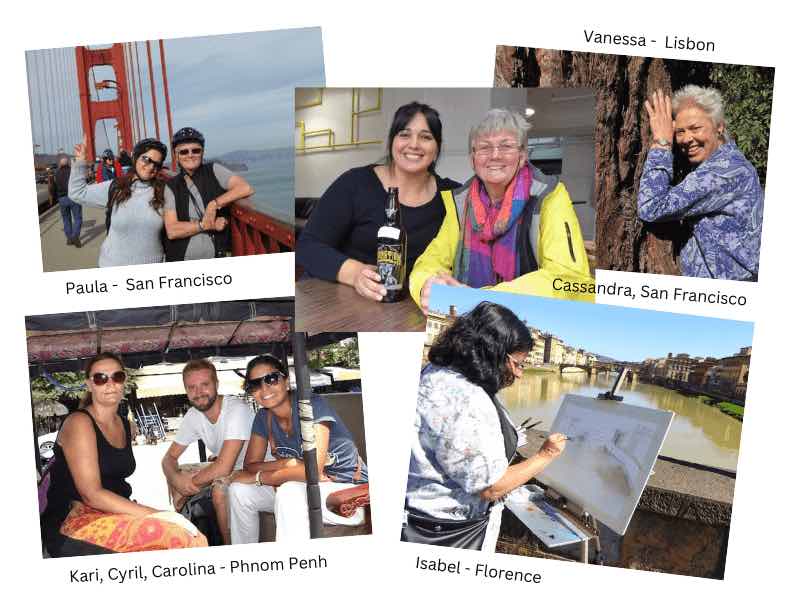
13. Most hostels are very quiet
It’s surprising how quiet a room of twelve women can be. It restores faith in just how considerate and respectful most people are.
Some people spend a lot of time in their bunks. They may be sleeping, culling photos, reading, researching, catching up on emails, or watching Netflix or YouTube. Most hostels have a lounge or dining area, and depending on the time of day, it tends to be a quiet place where people enjoy a chat or get some work done.
Scrutinizing reviews usually reveals which are ‘party hostels,’ and which ones have quiet times and attract travellers more interested in peace and quiet than partying.
14. Solitude or company. The choice is yours.
Hostels can be a vibrant social hub or a place for people to enjoy the gift of solitude. If you’ve mastered the art of using your own body language or headphones to indicate which you’d prefer, you’ll recognize the signals in others.
People who stay in hostels tend to be welcoming and friendly. Initiating conversations with others is expected but not obligatory.
While working in the lounge at the Space Inn in Taipei, I observed a group of workers from South Korea practising chants and songs for a demonstration outside their Taiwan-based employer’s premises planned for later in the day. I watched with interest and quietly applauded at the end of their routine. An invitation to join them for a photograph and a chat was the outcome.
 Space Inn, Taipei
Space Inn, Taipei
Hostel guide and packing tips
Tips on choosing a hostel
1. Check out Hostelling International
With over 3.3 million members, Hostelling International is a charity that manages a federation of not-for-profit hostel associations in over 80 countries. Membership attracts a 10% discount on overnight stays in many hostels, and discounts on other travel-related services. After a few years of purchasing annual memberships, I opted for the convenience and affordability of a lifetime membership. I’ve found that HI hostels are consistently quiet and clean and tend to attract older travellers.
2. Make a list of your needs
What’s important to you? What will you look for in the description, photographs, and reviews? Here are some ideas:
- How safe is the neighbourhood?
- What is the nearest transit stop, and what is the route from the airport/train station?
- Is the registration/reception desk staffed on a 24-hour basis?
- What do the reviews say about cleanliness and security?
- Does each bunk have a safe? Does each bunk have a locker? Does the locker have power points or a charging station?
- How is each bunk set up? Is there a privacy curtain or panel? Is there a reading light, shelf, and charging station?
- Is Wi-Fi available throughout the property?
- How large is the kitchen, and is it well equipped?
- Do the ‘rules’ include quiet times?
3. Scrutinize reviews
My usual starting point for reviews is Hostelworld. It has a vast inventory of listings with photographs, descriptions, and many reviews. Each reviewer’s age band and country of residence are indicated, offering clues on the ages and nationalities of guests. Its functional rating system makes it easier to disregard hostels with a low rating.
4. Pay attention to restrictions
- While rare in my experience, the odd hostel discriminates against older travellers. I failed to notice an age restriction of 45 years on a hostel I booked in Kraków, Poland, in 2022 and was turned away at the registration desk. Thank goodness I’d arrived in the morning and found space at another hostel that I wouldn’t have chosen under normal circumstances. When I stayed at the Second Home Hostel in Istanbul in 2014, dormitory stays had an age limit of 40 years, so I opted to keep my booking and stay in a private room.
- Some hostels have age caps on the upper and lower ends.
- Not every hostel has a 24-hour registration desk. For late arrivals, many hostels accommodate late check-in with advance notice.
- Verify payment methods. Some hostels are cashless, and not every hostel accepts credit card payments.
- Towels may be provided or available for rent. The odd hostel, such as the Belfast International Hostel, didn’t supply towels on any basis in 2019.
- Many hostels have a cap relating to the length of stay. If it’s one week or two, chances are guests are travellers. If not, it may attract long-term residents looking for affordable housing.
5. Look for security provisions
Most of the hostels I’ve stayed in have several layers of security to keep non-residents out, and guests out of areas where they have no valid reason to be.
Key cards are popular for after-hours entrances, access past the reception area, and to a private room or dormitory. A separate key might be for a locker, but a more common scenario is for a locker to accommodate a padlock.
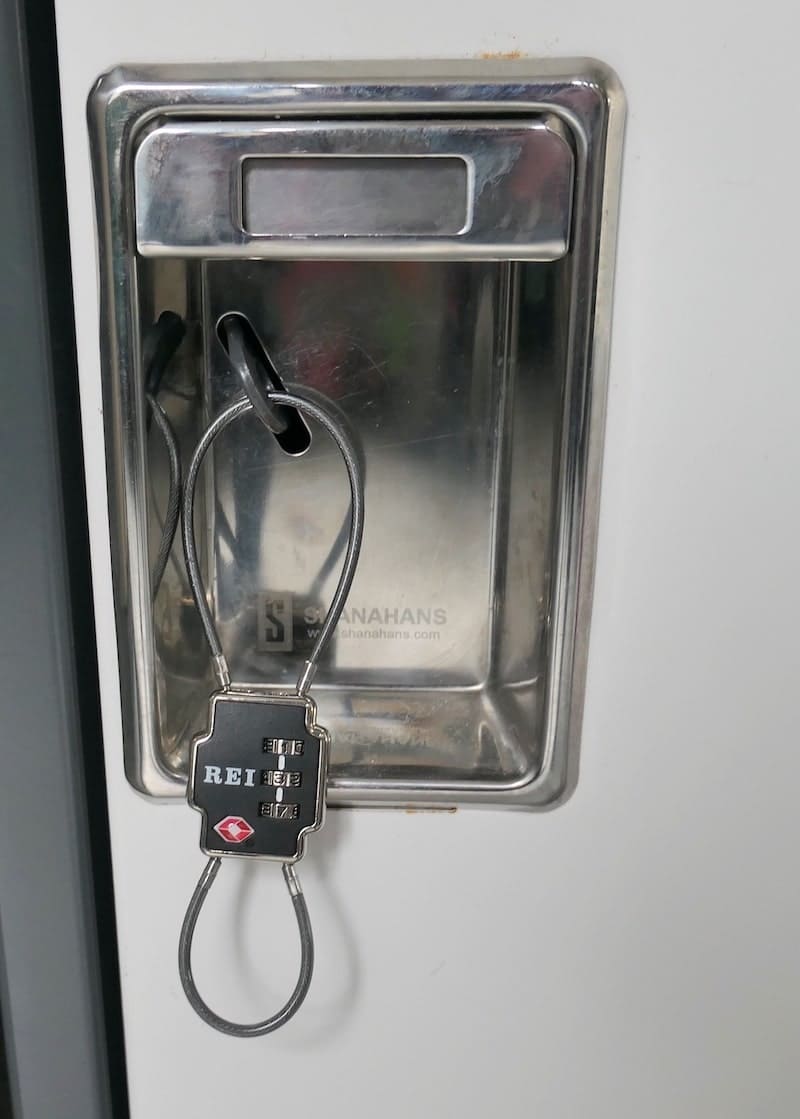 HI NYC Hostel
HI NYC Hostel
6. Ease in with a private room?
If it’s your first time staying in a hostel (or some time since you have), consider booking a private room. You can check out the hostelling experience for a reasonable price yet still have your personal space.
7. Mixed or gender-specific dorm?
The choice of a mixed or gender-specific dorm will be influenced by availability, cost, and comfort level. Mixed dorms tend to be cheaper, and the price usually varies with bed count. I’ve had many positive experiences in women’s dorms and have no plans to switch.
8. Lower or upper bunk?
It had been many years since I’d stayed in a hostel. On a trip to Lisbon, I didn’t give any consideration to the possibility of reserving a particular bunk.
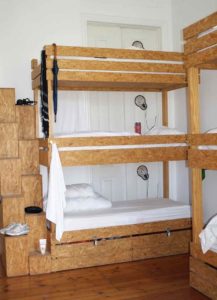 When my friend and I were escorted to our women’s dorm in the Independente Hostel & Suites at 9:00 pm, two beds were available. I had to lean backwards to see the top bunk at the top of a three-bed tower. It was the first time I had seen such a configuration (and nothing like it since.) The other empty bed was in the middle of the same tower. I surveyed the steps, blocks built into the wooden frame. I was speechless, partly from surprise and partly from thinking how on earth I would navigate those steps on nightly bathroom visits. My momentary silence provided enough of an opening for my travel mate to volunteer to take the top bunk. I smile at the recollection.
When my friend and I were escorted to our women’s dorm in the Independente Hostel & Suites at 9:00 pm, two beds were available. I had to lean backwards to see the top bunk at the top of a three-bed tower. It was the first time I had seen such a configuration (and nothing like it since.) The other empty bed was in the middle of the same tower. I surveyed the steps, blocks built into the wooden frame. I was speechless, partly from surprise and partly from thinking how on earth I would navigate those steps on nightly bathroom visits. My momentary silence provided enough of an opening for my travel mate to volunteer to take the top bunk. I smile at the recollection.
Since then, I’ve always requested a lower bunk when booking and in a follow-up email if confirmation hasn’t been received. In every case, my request has been honoured.
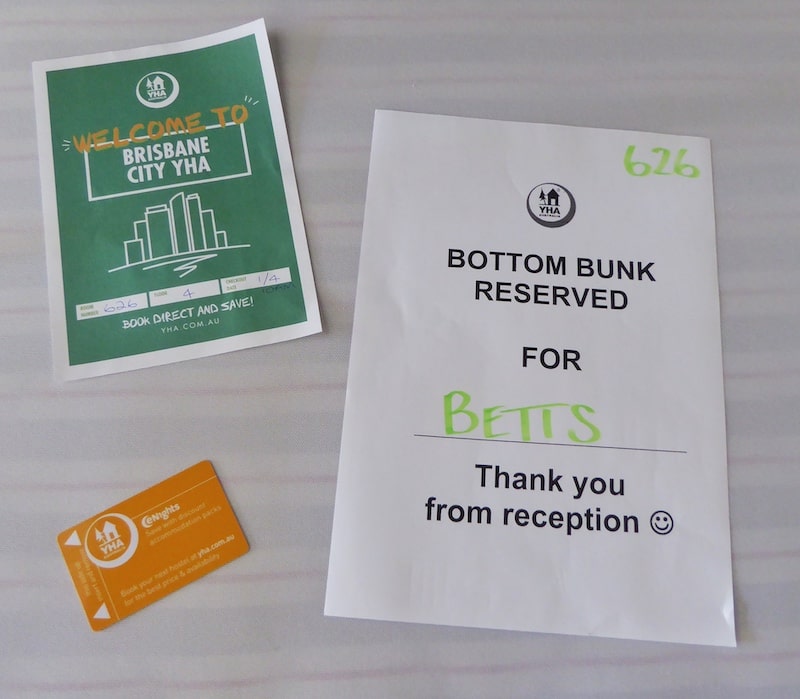 Brisbane City YHA
Brisbane City YHA
9. Book in advance
In popular destinations and seasons, space becomes limited the closer to travel dates. Some properties accept block bookings that can severely restrict availability.
Booking directly with the hostel avoids paying a commission to third-party corporations. When determining the best deal, take location and extras into consideration, such as breakfast and the ability to save on transportation costs. Refundability is another factor when paying in advance.
Packing list essentials for staying in hostels
If you’re considering staying in hostels, some of the following items should be on your hostel packing list.
 1. Lock
1. Lock
Many hostels provide lockers for guests staying in communal rooms. Lockers are typically large enough to accommodate carry-on luggage. If not, a retractable cable lock could help secure a locked bag to a fixed object. My triple cable lock has worked on every hostel locker so far.
2. Shower shoes
 Bring shower shoes and wear them to, in, and from the shower. Shoes help avoid highly contagious bacterial and fungal infections that are easier to avoid than to treat. Floors can be wet, and shoes offer traction to reduce the chance of slipping. I use Havaianas Slim flip-flops as they’re lightweight, well-made, versatile, and dry quickly.
Bring shower shoes and wear them to, in, and from the shower. Shoes help avoid highly contagious bacterial and fungal infections that are easier to avoid than to treat. Floors can be wet, and shoes offer traction to reduce the chance of slipping. I use Havaianas Slim flip-flops as they’re lightweight, well-made, versatile, and dry quickly.
3. Toiletry bag with a hook
A toiletry bag with a hook can be hung on part of a bed frame and from an attachment point in a shower stall (shower rod, hook, or door frame). I use two Tom Bihn 3D Organizer Cubes. One holds liquids, gels, pastes, and powders and serves as a 3-1-1 bag to take into the cabin of an aircraft in carry-on luggage. The other is for solids and other non-liquid items.
4. Travel towel
Most hostels charge extra to rent a towel. If packing a travel towel, I advise skipping the microfibre variety. There are more sustainable alternatives. They come a distant second to a bamboo product when considering weight, space, absorbency, comfort, and ease of use. My Pangea Bamboo Towel is naturally antibacterial, biodegradable, and dries two times faster than a microfibre towel.
 5. Travel clothesline
5. Travel clothesline
No clothespins are required for a braided travel clothesline. Avoid one that relies on suction cups as attachment points. One with hooks at each end is more versatile to attach to fixed objects in a private room or the frame of a bunk bed in a dorm. Loop the line around the object and insert the hook into one of the braids. It’s useful for drying laundry, airing things out, hanging clothes to wear the next day, and setting up a privacy curtain. Hang a pashmina or sarong to create a screen while sleeping or dressing. It works very well when strung between the posts of the lower bunk in a hostel dorm.
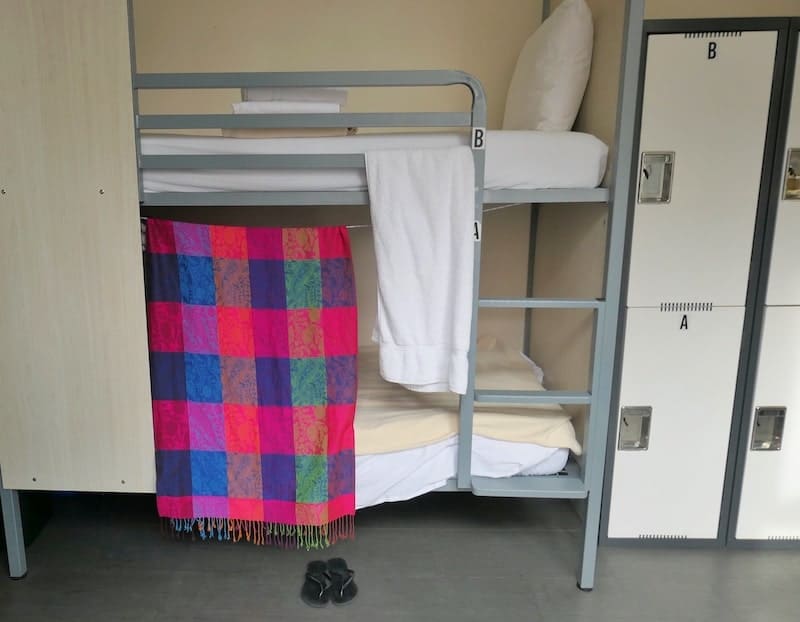 HI NYC Hostel
HI NYC Hostel
6. Vapour rub
A vapour rub or analgesic balm such as Boroleum, Mentholatum, or Tiger Balm containing menthol and camphor can serve another purpose: masking unpleasant odours, much like those sometimes experienced on a plane. Placing a small amount under the nose (just a little, as it’s not recommended using it inside the nose or on the lips) can obliterate the smell of body odour or cigarette smoke on clothing.
7. Dry sack
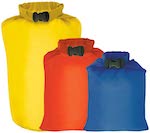 A dry sack is handy for stowing dirty clothes or laundry without a chance to dry before a travel day. A dry bag is also useful for separating wet or muddy footwear from other belongings.
A dry sack is handy for stowing dirty clothes or laundry without a chance to dry before a travel day. A dry bag is also useful for separating wet or muddy footwear from other belongings.
8. Earplugs
Bring earplugs. There may be noise from the street or nearby establishments. In my experience, dorms are quiet but this isn’t always the case. Some people snore, have night terrors, or come and go at all hours of the day and night. As in many public places, some people lack the wherewithal to lower their voices or take their phone calls or video chats somewhere else. There may be times when you’ll crave a sleep-in or need an early night. Foam earplugs are inexpensive. Pack earplugs in a case to keep them clean and protected from loss.
9. Headphones
Enjoying most media while not disturbing others will require headphones. The choice of headphones will depend on their versatility. For example, I prefer the wired in-ear noise-cancelling variety for long flights. As a sleep aid, I pack wired in-ear headphones that also serve as earplugs. I love an older Bose product (SoundTrue Ultra still available on eBay). They have an excellent seal, shutting out noise after the timer shuts down a podcast or audiobook.
10. Sleep mask
 If you’re sensitive to light from open curtains, a device, or overhead lights, a sleep mask may be an essential sleep aid if you relish the luxury of a dark room for sleeping. A contoured sleep mask with memory foam allows eyes to move freely under the soft fabric. Wide coverage and an adjustable strap conspire to block out light completely. Mine is from Tepech and works beautifully.
If you’re sensitive to light from open curtains, a device, or overhead lights, a sleep mask may be an essential sleep aid if you relish the luxury of a dark room for sleeping. A contoured sleep mask with memory foam allows eyes to move freely under the soft fabric. Wide coverage and an adjustable strap conspire to block out light completely. Mine is from Tepech and works beautifully.
11. Sleep sack
A silk sleep sack works as a sleeping bag liner or as or a luxurious, natural cocoon of comfort when circumstances warrant. Silk is a sustainable, lightweight fabric. It’sbreathable, packable, compact, and quick drying — perfect features for hikers and carry-on travellers. It offers warmth in cold conditions or relief when it’s warm. In 42-degree (Celsius) temperatures in Morocco (107.6 degrees Fahrenheit), my silk sleep sack protected me from biting insects yet offered a cool covering. After much research, I purchased my silk sleep sack in 2013 from the family-owned New Zealand company Silk Living, producers of the SilkSak. The YHA version has an insert that acts as a pillowcase and weighs just 108 g / 3.8 oz.
12. Charging cords of different lengths
An extra-long cable of 2 or 3 metres can usually reach an inconveniently located power socket in older hostels. A standard-length cable might see a phone dangling from a socket or sitting on the floor. However, a longer one can put a device within easy reach or in a more secure location. It can also mean using a device while it’s charging. When staying in hostels, this has been my experience; a longer cable puts my phone next to me while sleeping.
13. Booklight
 Most hostel beds come with a bedside light, but not all do. If you like to read, and your preferred reading material is in print form, consider packing a clip-on book light so your hands are free to turn the pages. The Gritin 9 LED Rechargeable Book Light has three light settings, is lightweight at 64 g / 2.25 oz, and clips to various surfaces, including softcover and hardcover books.
Most hostel beds come with a bedside light, but not all do. If you like to read, and your preferred reading material is in print form, consider packing a clip-on book light so your hands are free to turn the pages. The Gritin 9 LED Rechargeable Book Light has three light settings, is lightweight at 64 g / 2.25 oz, and clips to various surfaces, including softcover and hardcover books.
14. Flashlight
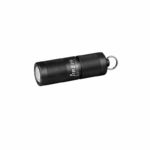 A small, lightweight, rechargeable LED flashlight is indispensable for navigating your way to the bathroom at night, finding something in the dark, or checking dark corners for missing items. Sure, there’s a flashlight app on your phone, but sometimes a flashlight is the better option. I like the compact size of the Olight I1R2 Pro, 180 lumens.
A small, lightweight, rechargeable LED flashlight is indispensable for navigating your way to the bathroom at night, finding something in the dark, or checking dark corners for missing items. Sure, there’s a flashlight app on your phone, but sometimes a flashlight is the better option. I like the compact size of the Olight I1R2 Pro, 180 lumens.
15. Membership card and booking confirmation email
Store booking confirmations in an easily accessible filing system such as ‘2023 > Africa Trip > Accommodation’ within your email account. This makes retrieving the information in advance and planning your route more accessible. When checking in, you may need to retrieve a copy of your reservation if the receptionist has trouble finding it in the hostel’s system. If you have a hostel membership, know how to quickly put your hands on your membership card in the respective app.
16. Tolerance and tempered expectations
Paying very little to stay in a hostel dorm means sharing sleeping space with people who don’t share your sleep patterns or what you consider appropriate hostel etiquette. Someone might come in after midnight or get up early to catch a flight. It could be a disorganized person who doesn’t have her bag packed and ready to go. These may not be an issue if you’ve packed the right sleep aids, but book a private room if you’re a light sleeper with a low tolerance threshold for these scenarios.
It also means staying in two-star accommodation at two-star prices, so it will be lacking in some of the features you’ve come to expect and appreciate about staying in hotels and holiday apartments.
Conclusion
For closing thoughts, here’s one first-time experience recently shared in a Facebook group:
“It was my first solo traveling experience in ages, and Dublin, Ireland, was my destination. I wanted to try new things, so I started off with staying at a hostel at 60 years old! In my mind, hostels were crowded, noisy, not the cleanest, and full of young party people. I have to say, I’m glad I tried it!
I booked a six-bed (three bunks) women’s room and requested a bottom bunk. On arrival, the staff were fantastic. The room had its own bathroom with shower, big bins under the bed for your stuff, private light/plug per bunk and a vanity with a couple of stools. A restaurant, bar, games room, and laundry facilities were downstairs. Everything I wanted to explore was within a 30-minute walk, and the transit system was right there.
The article, Why you should stay in a hostel when you’re an older traveller appearing in the New Zealand Herald ended with these sentiments:
”Staying in hostels as an older traveller needn’t be a case of “surviving” but thriving. Like travel itself, hostel life is about embracing new and sometimes daunting experiences that will leave both your travel memories and your bank balance a little richer.”
Might you be interested in my reviews of specific hostels? If so:
- Where to stay in London on a budget: Palmers Lodge
- Equity Point Hostel, Marrakech: Not Your Typical Hostel
- For affordable accommodation in Taipei, look no further than the Space Inn
How about you? Have you stayed in hostels? If so, why? If not, why not? Please join the conversation in the comments. Also, if you found this post useful, please share it by clicking on one or more of the social media buttons. Thank you.
Pin it for later?
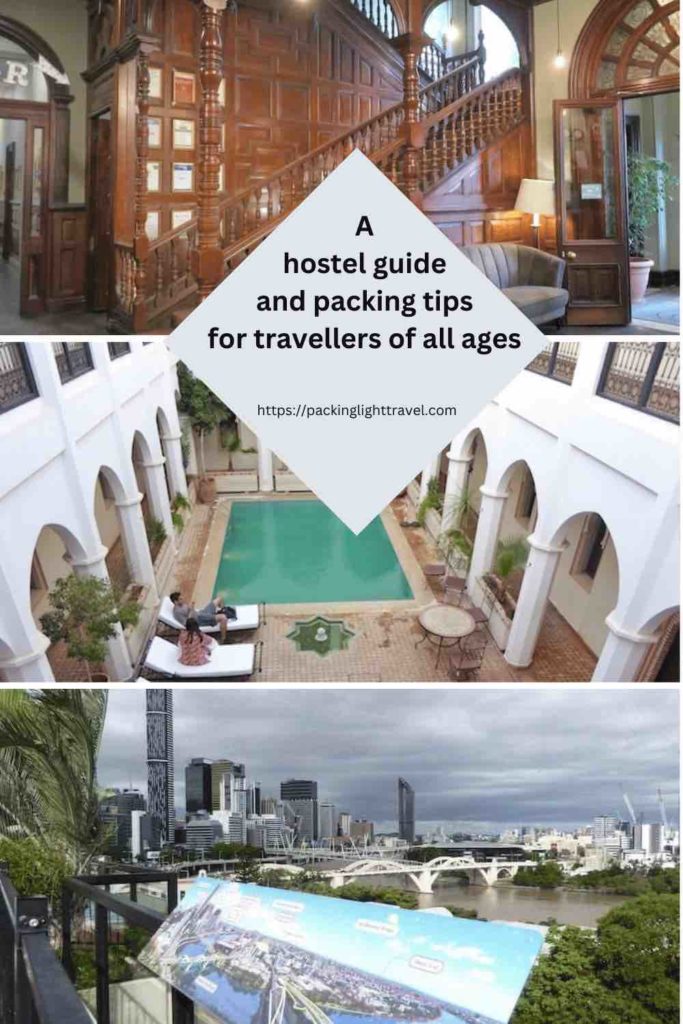

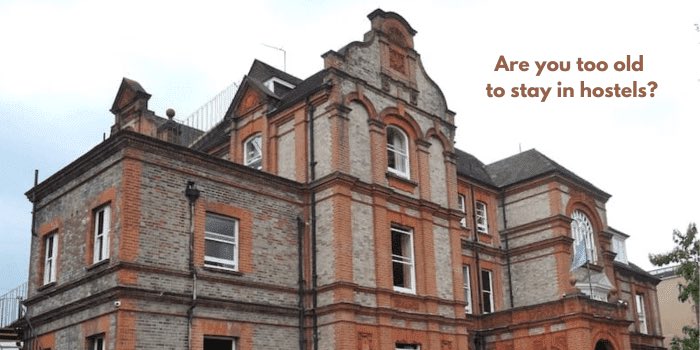




I booked a hostel by mistake a couple of years ago when I was travelling with my teen daughter in Iceland. It was a small house with five tiny bedrooms (no room for our luggage) and two shared bathrooms and a small shared kitchen. I thought we’ll just stay one night and find somewhere the next but it was absolutely fine. Most of the other guests were older. We stayed and I’d do it again.
Great post, thank you for covering the topic so thoroughly! I would really enjoy the camaraderie and company of staying in a hostel when traveling solo. But, I’m middle aged and at this stage in my life, I sleep very lightly and struggle with getting a good night’s sleep so I pass on dorm rooms. I hope my sleep changes in the next few years, because you highlight so many benefits of hostel stays. I’m saving your post to share with the empty nesters I work with, it is full of so many helpful questions and tips!
This is a very informative and enjoyable post! As an older traveler myself I often worry about being too old for hostels, but I’m usually surprised to find travelers even older than me to remind me I’m not too old! You do an excellent job highlighting the benefits of hostels. I too love the community and have met many people to enjoy the sights with, a huge benefit when traveling solo and worth the often lighter sleep I get in a dorm accommodations.
Thank you for dropping by, Melanie. I visited your blog to read a couple of posts on Ireland and saw where you made reference to the Galway Hostel. It’s not one where I stayed; travelling with three other women, we’d booked an AirBnB for a few nights in Galway. Cheers.
Your post makes me realize how unadventurous I am! I need to leave the husband at home and do some solo traveling…I’m definitely going to look into monastery stays in future. Happy future travels.
For me, I wouldn’t say age is my main concern – I don’t stay in hostels because I have social anxiety haha. I would be open to staying in a capsule/pod hostel type set up though! The big question I have though is if there are certain hostel chains where you could earn loyalty points? That’s such a huge thing for me when choosing hotels!
Thanks for dropping by, Kay. I’m with you on the loyalty points angle, as it relates to earning and redeeming points. I collect points in a couple of reward currencies with accelerated earning rates on bookings where the reward programs are affiliated with Expedia as the booking agency. Hostel bookings are perfect for redeeming points for free stays.
I’ve been so nervous to stay in a hostel on previous trips because I had the same assumptions that you did! I’m beginning to consider it more and more as a realistic option and reading this article makes me really want to try it!
Great guide, Anne! It’s refreshing to see hostels presented as a viable option for travelers of all ages. Your insights on safety, packing, and etiquette are super helpful, especially for older travelers considering hostels for the first time. Thanks for sharing!
Excellent article and so inspiring. I have stayed in hostels while all over Mexico for 6 weeks and that was overall a good experience. I was traveling with a group and much of the time we booked the whole room. It was mixed genders which I didn’t mind because we all knew each other. In Capetown, South Africa, I stayed in hostels for a week and found the staff extremely safety minded. One thing I didn’t realize until my second hostel there is that there were many permanent residents. All young males, of the “less ambitious” variety, mainly kept to themselves. I didn’t feel uncomfortable about it, other than it felt as if I was in their apartment when using the common areas. They were not a source of day trip companions or conversation partners. I think here I had my own room. Since covid, I decided it was time to explore my own country (USA) & was disappointed to find that hostels aren’t really a big thing here. Or maybe they are in large cities, but I was mainly road tripping between national parks. I ended up sleeping in my car all of the time because of it – sometimes in campgrounds, other times on government land. I was set up for this, but would have appreciated a hostel 2x week.